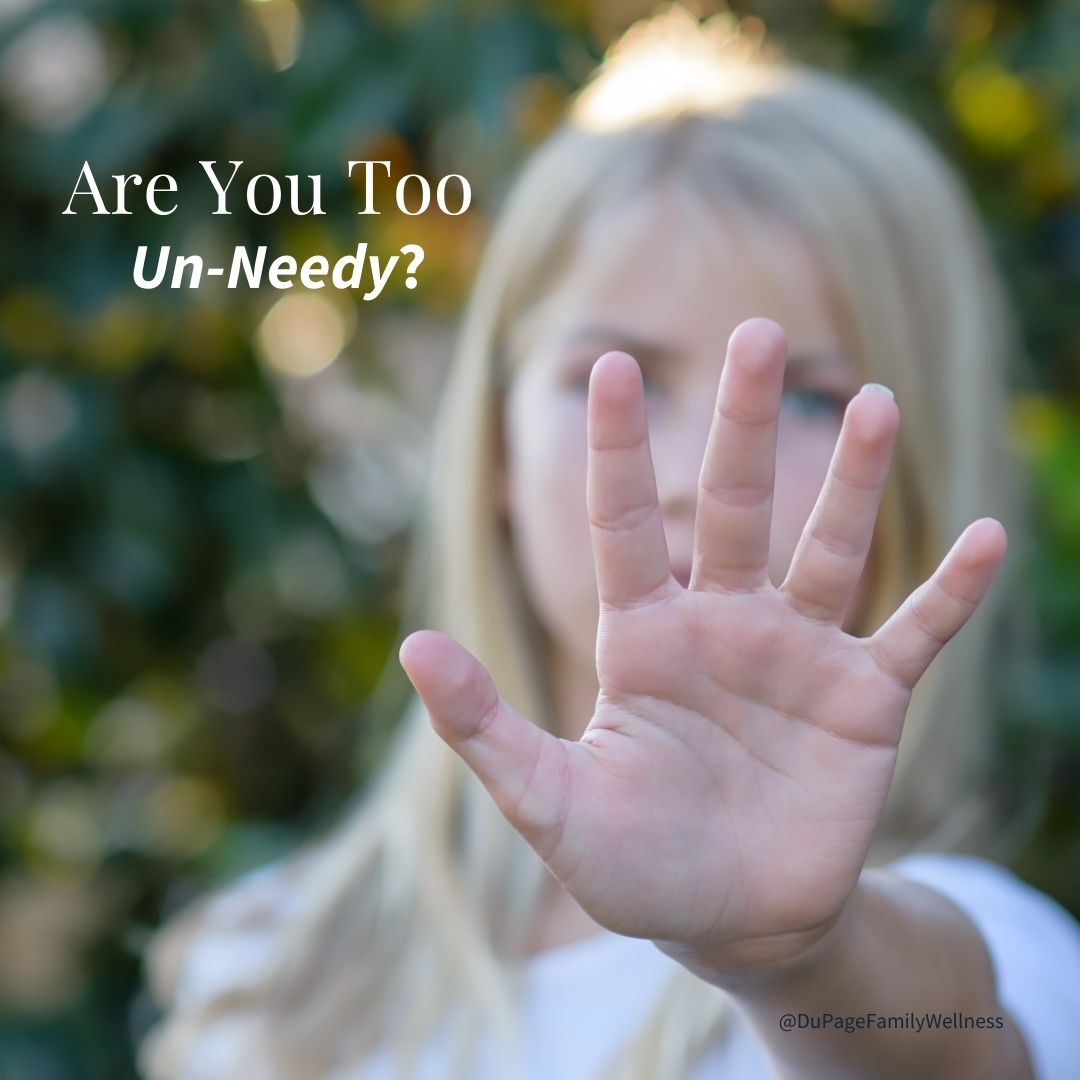 Do you regularly find yourself overwhelmed and exhausted? Does it feel like your responsibilities are never done and that you never have time for yourself? If so, you might have come to play the role of “needless” - one without needs!
Do you regularly find yourself overwhelmed and exhausted? Does it feel like your responsibilities are never done and that you never have time for yourself? If so, you might have come to play the role of “needless” - one without needs!
When you are not aware of your needs, or aren’t comfortable asking for those needs to be met, you can easily take on too much. Focusing on other people’s needs without considering your own will leave you living an unbalanced life.
While being too needy isn’t the goal, neither is being needless. To live a balanced life it is important that we learn how to both give and take in relationships. Let’s look at this dynamic and challenge any unhealthy beliefs we have about welcoming our own needs.
Why You May Struggle
As babies we are all very needy! We make our needs known without hesitation - often through our cries. But as we grow, we gain more and more control over our emotions and the way we display our needs. This is a good thing, however at times it can go too far.
As children grow society puts a lot of pressure on them to be "good boys" and "good girls." There is a large focus of conforming in many schools and families. Children are praised for helping others and not causing trouble. While there are obvious benefits to this behavior, in some cases it can create "people pleasing" tendencies that can become out of balanced. If children get the message that their needs are too much or will not be met, sometimes they simply turn them off. Of course this is not really possible, so those needs and the emotions that accompany them just get pushed down. When we do this for long enough, we can become “needless”.
Another way that people may develop a pattern of ignoring their needs is by growing up in a home where there needs aren't tended to enough. In his book, “Healing Your Lost Inner Child”, author Robert says this “often originates from an emotionally unavailable household in which the child eventually stops asking for their needs to be met.”. He explains that, “by ignoring their needs in adulthood, such an individual does not have to face the painful reality that their basic needs were not met in childhood.”
Needless people tend to be very good at seeing other people’s needs, but are not able to ask or give themselves what is necessary to have an emotionally fulfilling life themselves.
A Balanced Life
“Somehow we’ve come to equate success with not needing anyone. Many of us are willing to extend a helping hand, but we’re very reluctant to reach out for help when we need it ourselves. It’s as if we’ve divided the world into ‘those who offer help’ and ‘those who need help.’ The truth is that we are both.” - Brene Brown
I love this reminder from author and researcher Brene Brown. Our success is not tied to fierce independence. In fact, we can live a more fulfilling and successful life if we embrace our need for interdependence.
Simply put interdependence is a relationship between two or more living things that benefit from each other. It recognizes that together we are stronger than alone, and a connected life is more fulfilling than an isolated one.
Accepting Help
For people who struggle accepting their needs, reaching out for help can feel wrong or threatening. But something powerful takes place when we allow ourselves to receive from another person.
It’s not only that this encourages us to more realistically accept our limits - because needless people have a strong ability to push through their limits. It’s that accepting help creates a connection unlike that of independence.
It feels good to give when you are in a healthy relationship. But it’s important to remember that the other person wants to give to you as well. When we shut ourselves off from receiving, we block the other person from the opportunity to give.
Starting Small
When you first make this shift in perspective, it may still feel difficult to accept help from others. That's okay, just start small. If you aren’t ready to ask for help, start by accepting help when it is offered.
As you begin by accepting small acts of kindness, you will get used to receiving. Then you can begin asking for help with little things that aren’t a lot to ask. Eventually you will be able to start asking people for the things you really need.
How difficult is it for you to ask for what you need? Do you consider yourself “needless”? What can you do today to start shifting your perspective?
Healthy relationships have both give and take. The interdependence that comes from it is a gift that brings a greater level of connection than fierce independence ever will!
Dr. Jamie

